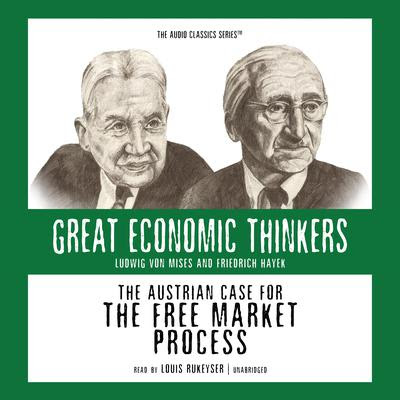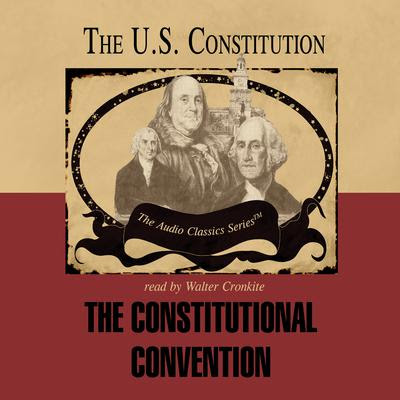So I recently finished listening to an economics audiobook about Ludwig von Mises and Friedrich von Hayek. It was called “The Austrian Case for the Free Market Process.” This audiobook was the sequel to another audiobook called “Early Austrian Economics,” which I first listened to some years ago. One might have titled this audiobook “Later Austrian Economics,” except that applying the term “later” to this will no doubt be outdated before too long, if it isn’t already. Besides, “The Austrian Case for the Free Market Process” is probably a more exciting title, and may do more justice to the nature of the subject matter.
Wednesday, September 29, 2021
Friday, September 17, 2021
A review of “The Constitutional Convention” (audiobook)
“Resolved. that the right of suffrage in the first branch of the national Legislature ought not to be according to the rule established in the articles of confederation: but according to some equitable ratio of representation — namely, in proportion to the whole number of white and other free citizens and inhabitants of every age, sex, and condition including those bound to servitude for a term of years, and three fifths of all other persons not comprehended in the foregoing description, except Indians, not paying taxes in each State.”
“Resolved. that the right of suffrage in the second branch of the national Legislature ought to be according to the rule established for the first.”
– Articles 7 and 8 of the “Virginia Plan” (1787), the first draft of the United States Constitution (written by James Madison)
I had already seen a fine docudrama about the Constitutional Convention, before I ever listened to this audiobook. This was “A More Perfect Union: America Becomes A Nation” (which I review here). Obviously, there are advantages to a docudrama over any audiobook, such as the entertainment value of the powerful visuals that it includes. The docudrama may also be better at covering the greatest issue of the Convention, which was the controversy over representation. But this audiobook is better at covering pretty much everything else about the Convention. It covers issues not touched upon in the docudrama, such as the debates over the executive and judicial branches. These debates were quite important for the final document.
A review of “The United States Constitution” (audiobook)
“[The Congress shall have the power] To make all laws which shall be necessary and proper for carrying into execution the foregoing powers, and all other powers vested by this constitution in the government of the United States, or in any department or officer thereof.”
If one wants to understand the Constitution, there is no substitute for actually reading the document itself, of course. But this audiobook gives historical context that is not available within the document itself. It helps to place the original Constitution into the context of its times, and leaves it to another audiobook to cover the amendments to the Constitution (a subject that I have covered elsewhere).
Thursday, September 16, 2021
A review of PBS’s “The Latino Americans”
“[The Congress shall have the power] To establish an uniform rule of naturalization … ”
The United States has more Spanish speakers than any other country in the world, except its southern neighbor of Mexico. This may be ironic, given that the most spoken language in the United States is English. Nonetheless, the United States has a significant Spanish-speaking population, most of whom are native speakers. Indeed, Hispanics are the largest ethnic minority group in the United States – although it is noteworthy that they are not considered a “race” by the United States Census. Rather, “Hispanic or Latino” is considered an ethnicity, and includes people from multiple races, particularly Whites and Native Americans. This reflects the ethnic diversity of their various countries of origin, where White colonists from Spain had frequently intermarried with the locals.
Benjamin Bratt, the Hispanic/Latino narrator of this documentary
A review of PBS’s “Black in Latin America”
The trans-Atlantic slave trade had massive effects on Latin America, and not just the future United States. Because of this, there are significant Black populations scattered throughout the Americas. All of them have roots in the kidnapping of slaves from Africa, of course, but Blacks in each country have a distinct story of their own. Their history transpired differently in some of those countries than it did in others. This program surveys black history in six of these countries. These countries are as follows: Haiti, the Dominican Republic, Cuba, Brazil, Mexico, and Peru. Since this series has only four episodes, some episodes have to cover more than just one country, although some are focused on just one of them, which allows for greater depth of coverage. (Incidentally, this program is hosted by Henry Louis Gates, Jr., a professor of African American Studies who is himself an African American.)
The Portuguese presenting themselves before the Manikongo – Kingdom of Kongo, Africa
Wednesday, September 15, 2021
A review of David Grubin’s “The Jewish Americans” (PBS)
“Congress shall make no law respecting an establishment of religion, or prohibiting the free exercise thereof … ”
Jews are a tiny percentage of the American population, but they have nonetheless exerted a massive influence on American life. Adherents to Judaism make up less than 3% of the American population, although ethnic Jews are more numerous than practicing religious Jews. But even these tiny percentages represent several millions of Americans. The United States has welcomed Jews more than any other country in the world, with the possible exception of the state of Israel. As this documentary shows, they were not free of Antisemitism even here, but the persecution that they faced in the Old World seems to have been far greater than anything that they faced here. Escaping such persecution was indeed one of the primary reasons that they came to America, and they generally succeeded in finding a safe haven in the New World.
David Grubin, the maker of this documentary
Subscribe to:
Comments (Atom)








